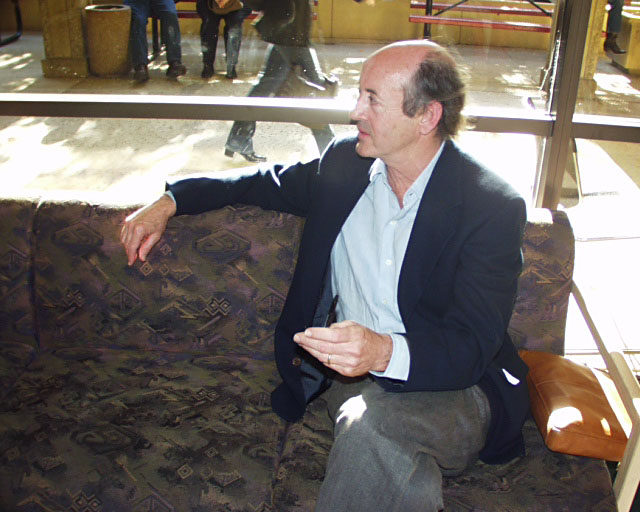Billy Collins (b. 1941) is ‘the most popular poet of America’ according to some. He was poet laureate of the US several times and won a prize or something for the America’s funniest home poetry – he manages to tell a good joke without destroying the poetic wager. I fell in love with this poet, that is somewhat longer than I usual quote here. Give it up for Emily’s striptease:
Taking off Emily Dickinson’s clothes
First, her tippet made of tulle,
easily lifted off her shoulders and laid
on the back of a wooden chair.And her bonnet,
the bow undone with a light forward pull.Then the long white dress, a more
complicated matter with mother-of-pearl
buttons down the back,
so tiny and numerous that it takes forever
before my hands can part the fabric,
like a swimmer’s dividing water,
and slip inside.
You will want to know
that she was standing
by an open window in an upstairs bedroom,
motionless, a little wide-eyed,
looking out at the orchard below,
the white dress puddled at her feet
on the wide-board, hardwood floor.The complexity of women’s undergarments
in nineteenth-century America
is not to be waved off,
and I proceeded like a polar explorer
through clips, clasps, and moorings,
catches, straps, and whalebone stays,
sailing toward the iceberg of her nakedness.
Later, I wrote in a notebook
it was like riding a swan into the night,
but, of course, I cannot tell you everything –
the way she closed her eyes to the orchard,
how her hair tumbled free of its pins,
how there were sudden dashes
whenever we spoke.What I can tell you is
it was terribly quiet in Amherst
that Sabbath afternoon,
nothing but a carriage passing the house,
a fly buzzing in a windowpane.
So I could plainly hear her inhale
when I undid the very top
hook-and-eye fastener of her corsetand I could hear her sigh when finally it was unloosed,
the way some readers sigh when they realize
that Hope has feathers,
that reason is a plank,
that life is a loaded gun
that looks right at you with a yellow eye.
Tippet, tulle and bonnet, such lovely words! And such a gentle language Collins employs to remove them from Emily’s body. It is funny when he calls our attention to how she is standing by the window, looking at wide-eyed at the orchard, seemingly unaware of horny Billy’s attempt to undress her.
Her white dress already lies deliciously at her feet, and the puddle becomes ice and he a polar explorer mixing metaphors of undergarment and the shipping industry. It’s a common observation that the more we approach nakedness, the more it becomes clear that we don’t have access to everything. Some observations – Billy doesn’t care to mention them, we don’t understand it anyway – remain private: her hair tumbling free, how she closed her eyes, and the dashes when she speaks. Emily Dickinson, for us, is pure text: lines, dashes, but here they come to life.
He provides some more coordinates before taking off that harrowing and imprisoning undergarment, the corset. There he is, enjoying the iceberg of mrs. Dickinson’s nakedness, sinking like a Titanic at her pale skin, and he throws the baton of poetry to the readers. The realize:
– that Hope has feathers (fly, imagination)
– that reason is a plank (the wide-board floor again?)
– that life is a loaded gun looking at you with a yellow eye (yeah, happiness is a warm gun, we look into the barrel where we see the color yellow and we can never explain)
I’m not sure about this dramatic culmination, but I love the poetic courage displayed here. Perhaps one day, when we have finally overcome that irksome gadfly of our society called sexism, we can laugh at a poem entitled ‘Taking of Billy Collin’s clothes?’ Maybe I should write it.

One thought on “Reading: Taking off Emily Dickinson’s clothes by Billy Collins”
Comments are closed.